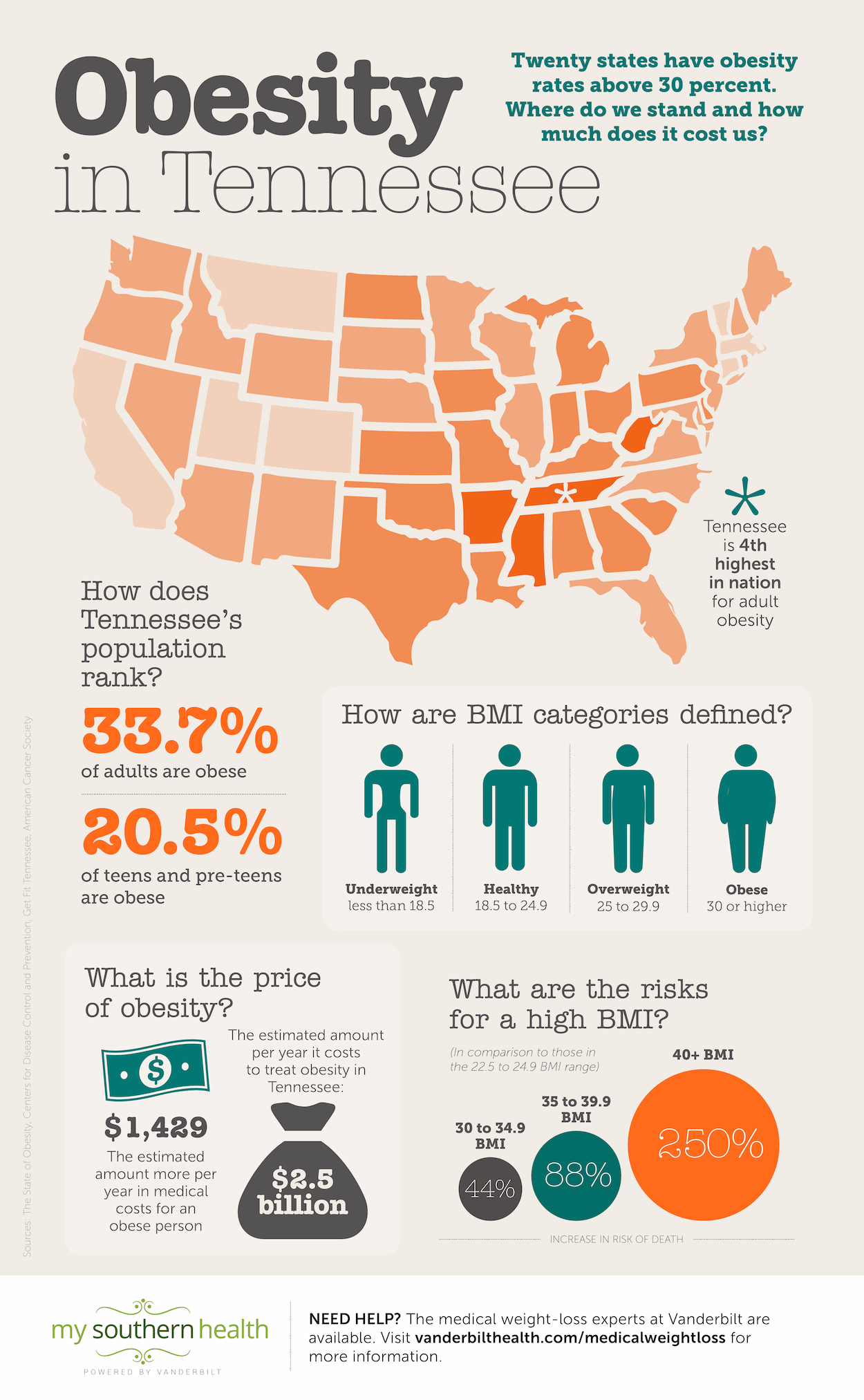How does Tennessee rank?
As a person’s Body Mass Index increases — young or old — so does the risk for additional health problems. Obesity is known to contribute to a number of diseases including diabetes, high blood pressure, heart disease, stroke and cancer, as well as others.
Scare tactics aside, small changes can make a big difference. Consider walking to your favorite farmers market instead of driving to the store, or renting kayaks at Old Hickory Lake for your next family Saturday outing.
A healthy, nutritious diet paired with physical activity is important to combating obesity. The National Institutes of Health suggests the following tips to help a family stay on the path to good health:
- Follow a healthy eating plan. Make healthy food choices, and keep your calorie needs and your family’s calorie needs in mind. We suggest filling your recipe box with some of our favorites!
- Focus on portion size. Watch the portion sizes in fast food and other restaurants. The portions served often are enough for two or three people. Children’s portion sizes should be smaller than those for adults.
- Be active. Make personal and family time active. If you’re looking to keep it simple, go for a brisk walk or bike through the neighborhood with your family.
- Reduce screen time. Limit the use of TVs, computers, DVDs and video games because they limit time for physical activity. Health experts recommend two hours or less a day of screen time that’s not work- or homework-related.
- Keep track of your weight, body mass index and waist circumference. Also, keep track of your children’s growth.
Calculate your BMI using Vanderbilt University Medical Center’s calculator (scroll to the bottom of the link’s page).




